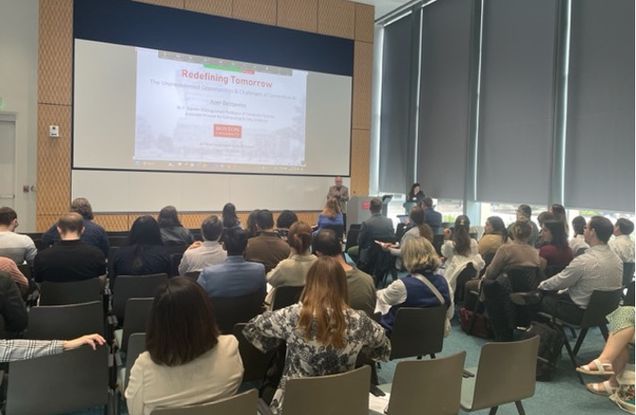AI Task Force for Administration
The AI Task Force for Administration evaluated the potential for integrating Generative AI (GenAI) within administrative processes along with the organizational structure and support needed to do so successfully.
Key Recommendations
Pilot Programs and Competitive Landscape
This task force identified areas of Boston University that could benefit the most from using AI. Then, the Task Force ran three pilot programs with over 60 participants from administrative units across the University to test AI tools and assess other factors associated with AI implementation, such as cost effectiveness, data security considerations, and more. All participants received foundational AI training from Azer Bestavros, Assoc. Provost for Computing & Data Sciences.

Throughout the pilot programs, participants took surveys at the beginning, mid-point, and end of the pilots to understand general sentiment, identify use cases, assess effectiveness, and gather insights on training and support needs. In addition, the Task Force conducted research to better understand how AI fits into the larger university environment. Below are a few highlights from this research:
- Prior to the program, 63% of leaders shared they were not awaiting central guidance from BU before exploring AI initiatives in their administrative area. However, a lack of coordination in these efforts can lead to increased risk, inefficient use of resources, and make it difficult to measure AI maturity as a University.
- The percentage of AI Pilot Participants who rated their AI knowledge as “Moderate” or above increased by 32% after basic AI literacy and tool-specific training.
- 67% of pilot participants found software was somewhat or extremely effective at assistance with completing tasks
- 62% of leaders shared that they would like to see a dedicated AI support team
- Data quality, privacy, security, regulations, ethics, and guidelines are top concerns of AI implementation